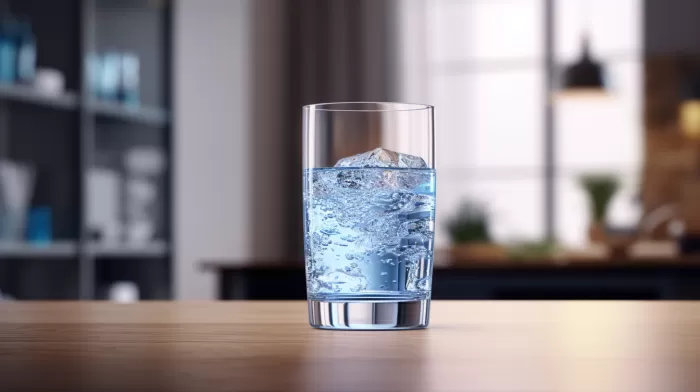You may have read about contaminants in tap water that need to be filtered out, but there’s a substance that might be hiding in your drinking water in small amounts that could help boost your brain function and fend off Alzheimer’s disease. The substance in question is the element lithium.
Although the benefits of lithium have been somewhat controversial, evidence is slowly accumulating that relatively tiny doses of lithium can improve mood, decrease suicide rates significantly, and even promote brain health.
The History of Lithium
Before the arrival of Europeans in North America, Native Americans had long been drinking water from natural springs that were high in lithium. They believed these springs had significant healing powers – and they were right! It wasn’t until the first half of the 20th century that Americans began imbibing soft drinks that contained lithium. For instance, the “up” in 7-Up used to be lithium – the beverage was originally called Bib-Label Lithiated Lemon-Lime Soda until the lithium was removed in the 1950s.
So, what happened? Medical doctors in the 1940s, instead of consulting with traditional and alternative practitioners about the proper way to use lithium, began prescribing excessively large amounts of lithium to people with heart trouble. These lithium overdoses often led to fatal consequences and gave lithium a bad reputation.
Lithium’s Potential for Treating Brain Problems
These days, scientists are studying how lithium can be used to treat a variety of brain problems, such as ALS (amyotrophic lateral sclerosis), also known as Lou Gehrig’s disease. This often fatal nerve problem slowly paralyzes the body and is almost always fatal. Furthermore, research at the University of Pennsylvania School of Medicine shows that lithium may slow down the brain destruction that leads to Alzheimer’s disease.
Anna Fels, a researcher at Weill Cornell Medical College, believes that more research into lithium needs to be done. “Research on a simple element like lithium that has been around as a medication for over half a century and as a drink for millenniums may not seem like a high priority, but it should be,” she asserts.
Lithium in Your Drinking Water
Some experts are considering the potential benefits of adding lithium to our drinking water supply in tiny amounts. The idea is similar to the practice of adding fluoride to drinking water, which has been shown to help improve dental health in communities where it’s used.
Several studies have already shown positive effects of trace amounts of lithium in drinking water. For example, research conducted in Texas involving nearly 27 counties found that higher levels of lithium in the drinking water were linked with lower rates of suicide, homicide, and other causes of death.
Similarly, a study in Japan found that higher lithium levels in the drinking water reduced the risk of suicide in women and another study done in Austria found similar results.
Possible Side Effects and Concerns
While the idea of adding lithium to drinking water may seem promising, it’s essential to consider possible side effects. Among the lithium’s potential side effects are gastrointestinal issues, tremors, increased thirst, and weight gain. However, these symptoms are typically associated with higher doses of lithium than what’s being discussed for possible use in drinking water.
As research on lithium continues, the public and scientists alike have become more aware of the importance of using the right type and dosage of lithium for maximum benefits and minimal side effects. Keep in mind that there are different forms of lithium, such as lithium orotate, which may be more effective and safer than lithium carbonate, the form commonly prescribed by doctors.
Conclusion
As with any substance, it’s essential to use lithium responsibly and consider possible side effects. However, the potential benefits of lithium in drinking water should not be ignored, especially when taken at the right dosage. As research on this element and its role in brain health grows, we may one day find that lithium could have significant potential for improving mental health and preventing devastating brain diseases like Alzheimer’s.
In the meantime, you may want to consider getting your drinking water tested for lithium levels or looking into lithium supplements (under the guidance of a healthcare professional, of course).



